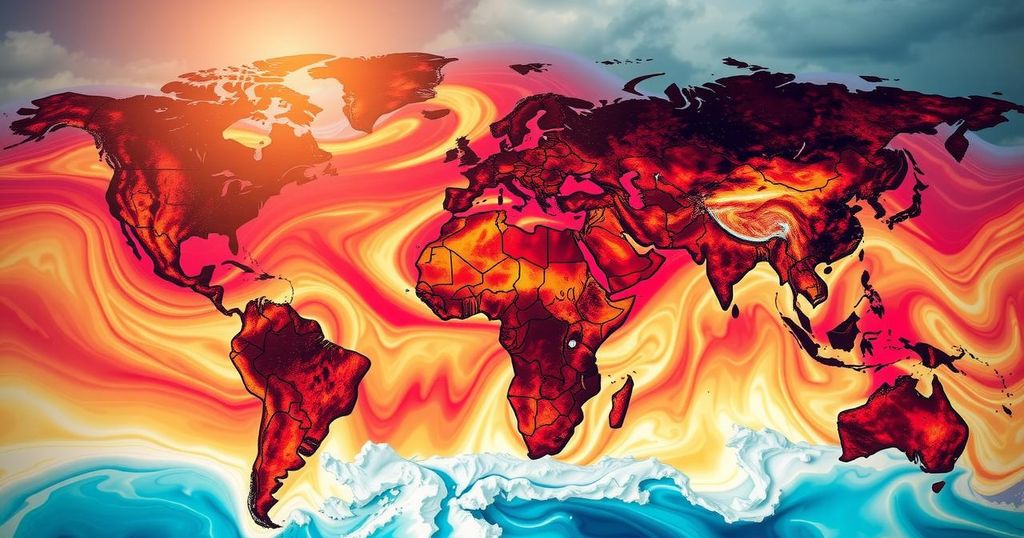Data indicates that 2024 is on course to become the hottest year recorded, with average temperatures expected to exceed 1.5°C above preindustrial levels. This trend exacerbates the climate crisis, highlighting the urgent need for global action as extreme weather events become more frequent and costly. Economic losses attributed to these events are projected to rise significantly, stressing the importance of adaptation and proactive measures.
Recent data suggests that 2024 is on track to become the hottest year ever recorded, with average temperatures projected to be 1.60°C above preindustrial levels, surpassing the previous record of 1.48°C set in 2023. The Copernicus Climate Change Service confirmed that November 2024’s temperatures were particularly severe, averaging 1.62°C above historical levels. This unprecedented increase is indicative of escalating climate crises and serves as a stark reminder of the urgent need for enhanced climate action.
The Paris climate agreement, aimed at limiting global warming to below 1.5°C, considers temperature measurements over multiple decades rather than single-year extremes. However, the chances of maintaining this target over the long term are diminishing, especially as CO₂ emissions are projected to continue rising into 2024. Despite a global commitment made in late 2023 to transition away from fossil fuels, the apparent rise in emissions complicates efforts to manage global temperature increases effectively.
The Copernicus data also revealed alarming trends regarding extreme weather events, highlighting disturbing frequency and intensity of heatwaves and natural disasters globally. In 2024, significant wildfires erupted across the Americas, notably affecting regions such as the Pantanal wetlands and parts of the Amazon due to extreme drought conditions. These disasters have contributed to escalating air pollution and health concerns across large areas.
Economic impacts are also rising swiftly, with estimated losses from extreme weather increasing by 6% to approximately $320 billion in 2024. Notably, less than half of these losses are covered by insurance, leaving significant financial burdens on vulnerable populations. As extreme weather events become more frequent, proactive adaptation strategies, such as infrastructure improvements, are essential to mitigate potential future losses
The alarming trend of rising global temperatures is underscored by scientific data indicating that the year 2024 is set to surpass all previous temperature records. This situation reflects ongoing challenges in addressing climate change, primarily driven by greenhouse gas emissions from fossil fuel consumption. Global climate agreements like the Paris Agreement aim to limit warming, but progress has been stymied by inconsistent international commitment and implementation challenges. The expected increase in both temperature and extreme weather events posits significant social, economic, and environmental repercussions that require urgent and cohesive global responses.
In summary, the evidence clearly indicates that 2024 is poised to be the hottest year on record, with significant implications for both climate policy and the global environment. As average temperatures exceed critical thresholds, the urgency for comprehensive climate action becomes paramount. The increase in extreme weather events and their associated economic costs underscore the necessity for proactive adaptation strategies to safeguard against future devastation. Without immediate action to curb emissions and strengthen resilience, the consequences of climate change will likely worsen.
Original Source: www.theguardian.com






